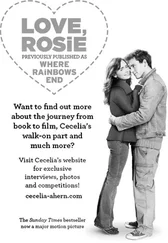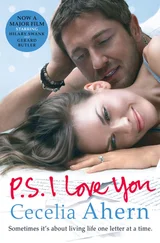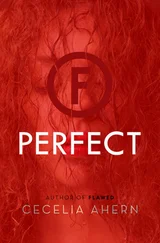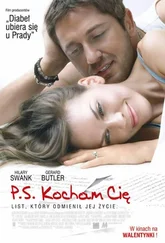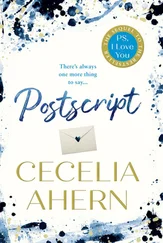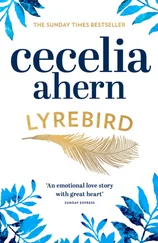“Good luck, Celestine.”
She stands and leaves the room.
Mum comes to my room later with a hopeful look on her face. “Did that help, sweetheart?”
I close my eyes and drift away.
Day five.
I wake up. And just as I have done every day for the past four days since I’ve come home, I force myself to go back to sleep. I realise it was not all a nightmare. It is true. Sleep is my only friend these days, so I roll on to my side, for my back is in too much pain, move my head on the pillow so that my temple doesn’t brush the fabric, try not to crease the skin on my chest so that it doesn’t sting and leave my right hand flat and open, the dressings preventing me from closing it anyway. This is the only way I can find respite, though for a girl of definitions, I use the term respite lightly.
I have not left my room for four days. I have left my bed only to go to the bathroom. Apart from Dr Smith and Angelina Tinder, Mum, Dad and Juniper have been the only others I’ve seen. They’re shielding Ewan from me, and I agree. Mum has tended to me night and day, cleaning my wounds, changing my dressings, putting whatever potions and lotions on them to take away the pain, to fight off infection. I have woken some nights to find Juniper sitting in the chair beside my bed staring into space; and then when I wake again, she is gone, so I wonder if it was merely a dream. Things were awkward and stilted between us when I returned from the castle. Though I know she did not plan for any of this to happen to me and it’s not her fault, something is bubbling beneath me, an anger over her part in it. She could have come to my aid on the bus, and she could have testified in court that I didn’t help the old man to a seat. Why couldn’t she have said it? I sensed her guilt as soon as I saw her when I came home, and it made me angry, it made me want to blame her. Anything so as not to blame myself.
I am plied with painkillers, and I like it. They give me a woozy out-of-body experience that takes me away from reality, softens the blow. I am aware, at different stages, of a crowd outside our house, but I don’t watch them and we don’t talk about them. I know when Dad leaves and arrives home from work, not because of the sound of his car engine, but from the camera clicks, the jump to life by the pack, the shutter speeds, the shouted questions. Some are kind, some are disgusting, directed at him as he comes and goes. I never hear his responses, if there are any, but I, too, would like to know if he could still love the most Flawed person in the history of the state.
“Do you love your daughter, Mr North?”
“How can you still love your daughter?” another shouts.
Still, I appreciate the latter’s assumption that there is still love for me at all, despite the fact that they find the very notion bewildering. It would never happen to them, not to someone they love. Impossible. I am poison to some of these people, but I am merely entertainment to others. I learned that from the way I hear some laugh when he drives away and they get back to whatever they were doing, having found the entire thing fun. My life is drama at its mightiest.
I recognise some of their voices. They are the gossip reporters, the news anchors, the familiar voices of my past. And now they’re talking about me. Only it doesn’t sound like me, not that person, just this revved-up version that I don’t recognise. They analyse and dissect my own behaviour with more thought than I’ve ever given it myself. I’m too weak to care about it and too embarrassed to listen to it properly. It is wafting in and out of my ears and mind, and quickly out again. I would rather sleep.
There is a television in my room, but I haven’t turned it on, nor my phone. It’s for the part of me I lost, the invisible part of me that I never knew was essential. The part I gave away to become nothing.
So far, technically, being Flawed has not altered my life. I haven’t been anywhere, haven’t done anything. I have stayed in this bed, and yet I don’t feel the same at all. Not because of the physical scars and ache, either, but I feel different to the bone. Just what Crevan intended.
There’s a knock on the door and I know that it’s Mum. I’ve learned how to tell who’s there, how to recognise the different styles. Dad’s is tentative, hesitant as though he’s afraid of disturbing me; Mum’s is all business, like she belongs in the room. She doesn’t even wait for a reply and enters. I turn over on my back to face her, feeling the pain in my spine as I do so.
“Your dad has worked out a way for people to visit. He’s blacked out the windows of his jeep. So he can meet visitors at the station, then drive them directly into our garage without anyone seeing.”
The garage has direct access to the kitchen, so nobody has to set foot outside the door.
“So if there’s anyone you want to see …”
“Art,” I say simply. Probably the first word I’ve uttered in days. It would be romantic if it weren’t for the circumstances.
She looks down at her hands, as if afraid to answer. I thought he would have visited me by now. I’ve been waiting. Listening. Each time I hear the doorbell, I hope it’s him, but it’s not, it never has been.
“Nobody knows where he is,” Mum says, finally. “After your verdict, he went home and packed his bags and took off.”
“I bet Crevan knows,” I say groggily, my tongue still heavy in my mouth. My throat is dry, and the words don’t come out easily. My tongue feels huge in my mouth. It is this that has been the most difficult sore to deal with as it blisters and scabs.
“No. He’s pretty much going out of his mind trying to find him.”
I smile. Good.
Mum hands me a glass of water with a straw.
“Are people ashamed to visit me? Is that why they’re going through the garage?”
“No.” She pauses. “It’s for privacy. So you can come and go in privacy.”
“I don’t plan on going anywhere.”
“School.”
I look at her in surprise.
“Next week. When you’re healed. You can’t hide in here for ever.”
I strangely hope I’ll never heal, so I never have to leave.
“Besides, they won’t let you stay in any longer. You have to face the world, Celestine.”
I wonder whether she will apply this to herself, too. She looks tired around her eyes. She hasn’t left the house for as long as I have, no visits to her clinic for a pick-me-up, though she will probably want an entirely new face after the scrutiny she has come under. I wonder how all this will affect her work, if she has been dropped from any of her portfolios. It would be naïve to think not. No one can be discriminated against for having a relationship with a Flawed family member. They are not responsible for the actions of their loved ones, but still, people always find a way to get around that. My mum’s life is just another person’s life I’ve ruined.
“Mary May is your Whistleblower. She has stopped by every day; she has been thorough in what we and you are allowed to do. She is … meticulous in her work,” Mum says, and I detect nerves. This woman must be some force of nature. “She has insisted on seeing you every day, but I’ve held her off,” Mum says with a determined look in her eye, and I know it couldn’t have been an easy task. “You’ll meet her in a few days. She’ll run through the rules and then stay with us during dinnertime. She wants to observe that we are abiding by the rules for the first few days. And you will see her every day after that. Each evening she’ll do two tests.”
“Angelina told me,” I interrupt her, not wanting to hear about the invasion again.
“She won’t be in your life apart from that.” She tries to make the daily invasion not sound as bad as it is. “You need to eat something,” she says, looking at my tray filled with food. “You haven’t eaten for days.”
Читать дальше

